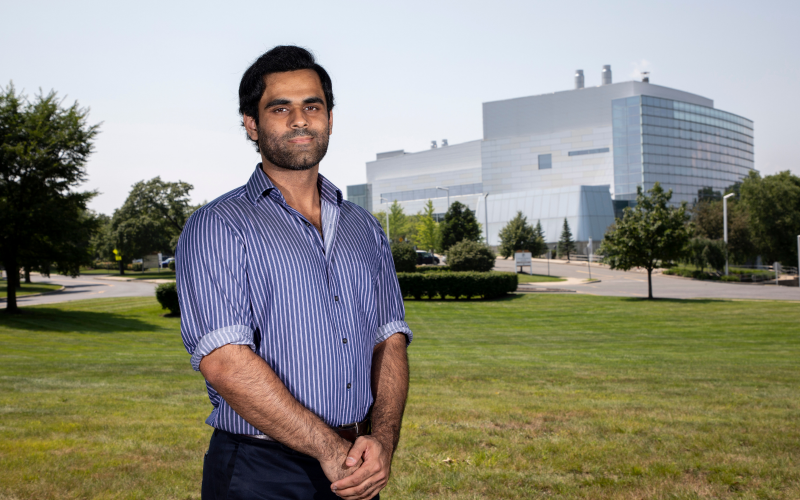Biomedical Sciences Student Works to Improve Understanding of Breast Cancer

ALBANY, N.Y. (August 5, 2021) – For so many of us, cancer has taken away loved ones far too soon. The need for rigorous cancer research is critical to prevent further loss of life, and Biomedical Sciences PhD student Ali Ropri is on the front lines of this fight, conducting research in Jason Herschkowitz’s lab at UAlbany’s Cancer Research Center to better understand breast cancer.
Ropri researches ductal carcinoma in situ (DCIS)— a condition when the cells around the milk ducts of the breast have become cancerous but they have not spread into the surrounding breast tissue. If DCIS spreads into the breast, it could then become invasive breast cancer, meaning that it could spread to other parts of the body as well.
“The current standard treatment for DCIS is an aggressive course of therapy to prevent invasive and metastatic disease,” Ropri explains. “However, this can result in over-diagnosis and over-treatment. This means that we really need to identify functional determinants of progression of DCIS to invasive cancer to allow for discrimination between indolent and aggressive disease.”
Ropri helped conduct a global analysis of super-enhancers (pieces of genetic code that can play a role in the regulation of gene expression) that are acquired or lost as DCIS progresses. This work has helped to identify super enhancers that can identify mechanisms for DCIS to progress to invasive cancer.
“This research is important for improving diagnostic methods to identify breast cancer at an early stage and be able to provide more efficient and effective treatment for breast cancer patients,” says Ropri.
With a background in physics, Ropri entered the cancer research field due to his family’s experience. His brother passed away due to brain cancer in 2017 and aunt passed away due to breast cancer in 2019.
“Switching to biological studies was difficult at first,” Ropri says. “But people at the Cancer Research Center—from faculty to post-docs to other students—were helpful in making sure I was progressing along in my research. I am ever thankful to everyone who has helped me become a better researcher.”
Ropri will continue to conduct research at the Cancer Research Center as he completes his degree, his main goal to utilize his research skills to advance our understanding and targeting methods for breast cancer.
“I also want to use my knowledge and skills to give back to the community through volunteer teaching and summer programs,” he says.


